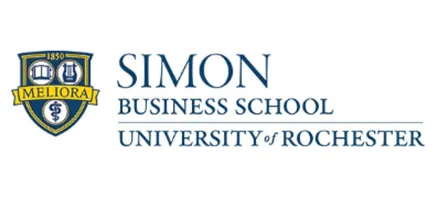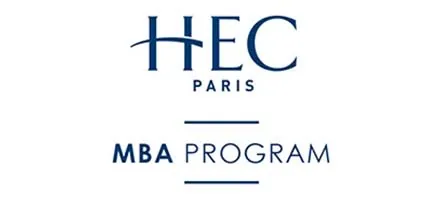
THE BIG TAKEAWAY
MBA programs live or die by their reputation. A positive reputation can foster trust and ensure long-term success. Loyalty and referrals are born out of a good name. Graduate business programs that are serious about building a positive reputation, experience increased enrollment, better job placement opportunities, and stronger relationships with employers.
However, many graduate business programs shun reputation building. They focus on quick wins over strategic growth. In a hyper competitive and crowded marketplace, many MBA programs resort to “click bait” advertising strategies, websites awash in buzz words, aggrandized specializations, shortened program lengths, and exaggerated “ranking” recognition to lure prospects who are unprepared or unqualified for an MBA.
In order to enjoy benefits and avoid pitfalls, MBA programs should think long and hard about their approach to enhancing reputation. Here are five ways MBA programs can enhance their credibility and produce sustained results:
Highlight real thought leadership. Productive thought leadership centers on insightful, forward-thinking ideas that contribute to meaningful discussion and challenge existing norms. Poorly executed thought leadership conveys shallow or recycled ideas that fail to offer genuine insights, contribute to the conversation, or provide meaningful value. MBA programs should work with their communications teams and consultants to identify research, novel opinions and insightful perspectives that break through the noise. Similarly, faculty researchers who engage in incremental research should consider how they can speak to the broader context (versus their incremental findings).
Establish a strategic media outreach program. The saying goes: “no one goes to The Wall Street Journal to read the advertisements.” Media coverage lends credibility and authenticity to brands, messages, and stories. Being featured in reputable news sources implies that the MBA program content or expertise is trustworthy and noteworthy. A strategic media program should focus on business, trade, and local media coverage that is helpful to key audiences and benefits the program (not marketing messages disguised as media coverage). MBA programs should not be lured into pay-for-play coverage or sponsored content.
Communicate with peer MBA programs and industry leaders. Popular MBA rankings, such as US News & World Report’s annual top business schools, are formed based on opinions by business schools, corporate recruiters, and company contacts on overall program quality. MBA programs should share their best practices and examples with other MBA programs regularly through blogs, social media and via email newsletters. Maintaining a list of leadership contacts at all accredited business schools requires attentiveness and rigorous cross checking. However, schools I’ve worked with have benefitted from the high level of engagement – more than 40% open rate from the outreaches to MBA deans. More importantly, we inspired fruitful dialogue that aided in rankings.
Choose substance over hype. It has been said: hyperbole is “the worst thing ever.” Overstated hyperbole – promising life-altering experiences, inflated salaries, immediate senior management jobs – are initially captivating but the reality is fleeting and hollow. Emphasizing substance shows how the MBA program delivers on promises. Examples of alumni success and case studies consistently demonstrating expertise are more persuasive than exaggerated claims. Active voice – words written in a direct, clear tone, focusing on the subject of the sentence and the action it is doing – makes the message more engaging and easier to understand.
Market successes. Sharing success stories highlights an MBA program’s values, expertise, and benefits to students and stakeholders. “In-Case-You-Missed-It” follow up emails, blogs, and newsroom entries offer the opportunity to reiterate messages to stakeholders. These communications instill confidence in potential students and demonstrate a track record of delivering on promises. Effective marketing of successes can also foster a sense of loyalty and shows how the program achieves its goals. Furthermore, publicizing successes can set the program apart from competitors, helping it stand out in a crowded marketplace.
To make sure all these things work, MBA programs need to have a strategy and a plan. A comprehensive communications strategy is pivotal in maximizing impact. A multifaceted approach ensures messages reach the right audience with clarity, consistency, and relevance. Timing is crucial in a plan as it can significantly impact the effectiveness of execution and the outcomes achieved. MBA programs that take an integrated approach to enhancing reputation have a greater likelihood of success. One-off or half-hearted reputation programs are sure to come up short. Engaging in one tactic is not enough to raise credibility.
MBA programs need to think about how to tell people they are good in a way that is clear and true. They need to prove what they are doing to help students. When MBA programs do all these things together, they can make more people interested and show that they are successful delivering what they promise.
In recent years many well-known university graduate business programs chose to shut down or severely pare back programs in the face of a myriad of economic challenges. Meanwhile, other MBA programs – particularly those who adjusted to online formats during the pandemic – have managed to survive and thrive. The survivors tend to focus on online collaboration with audiences, reducing time and commitment uncertainty with students, and creating an environment conducive to open communication and mutual growth.
The way MBA programs are perceived as they interact with audiences – aka relationships – is built on trust. Establishing and protecting that trust is the most important aspect of building a positive relationship. Violating that trust at any stage can be a terminal event. In that regard, MBA programs do, in fact, live or die by their reputation.
Patrick George is a partner at KP Public Affairs. He has worked with colleges and universities including MBA programs for more than 20 years.









